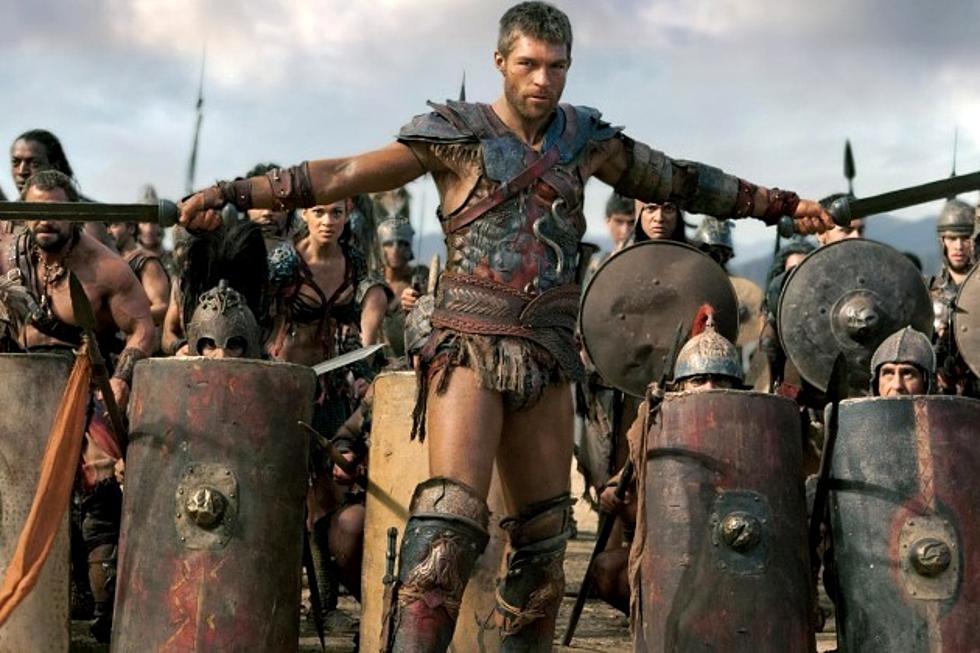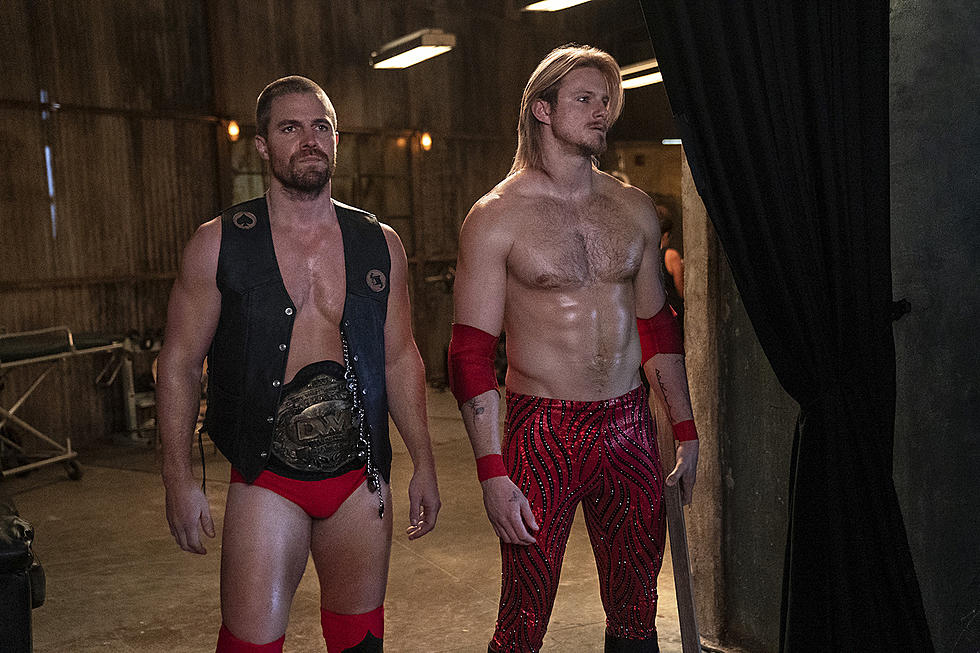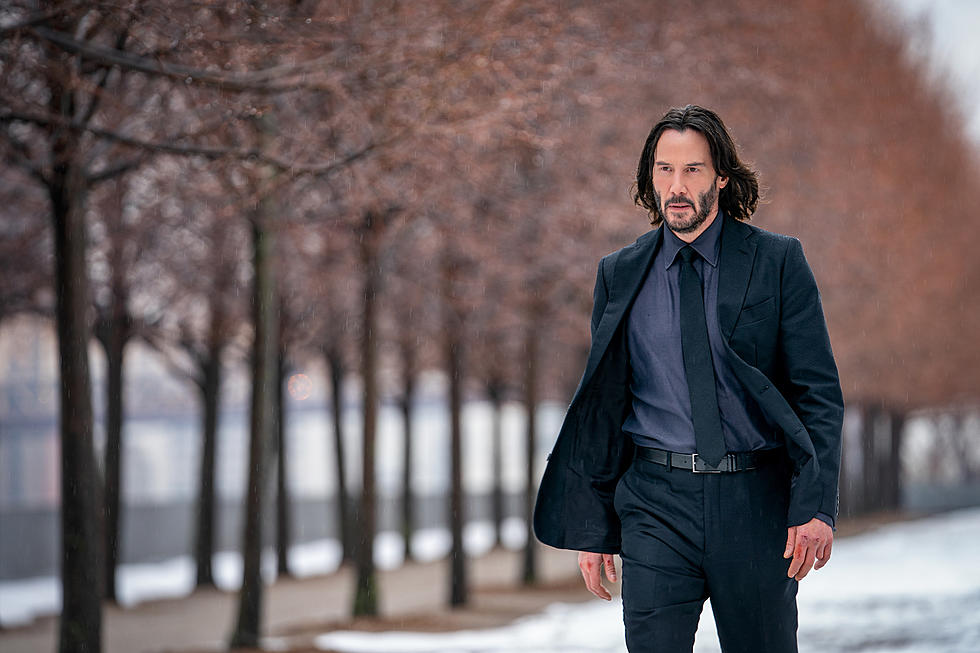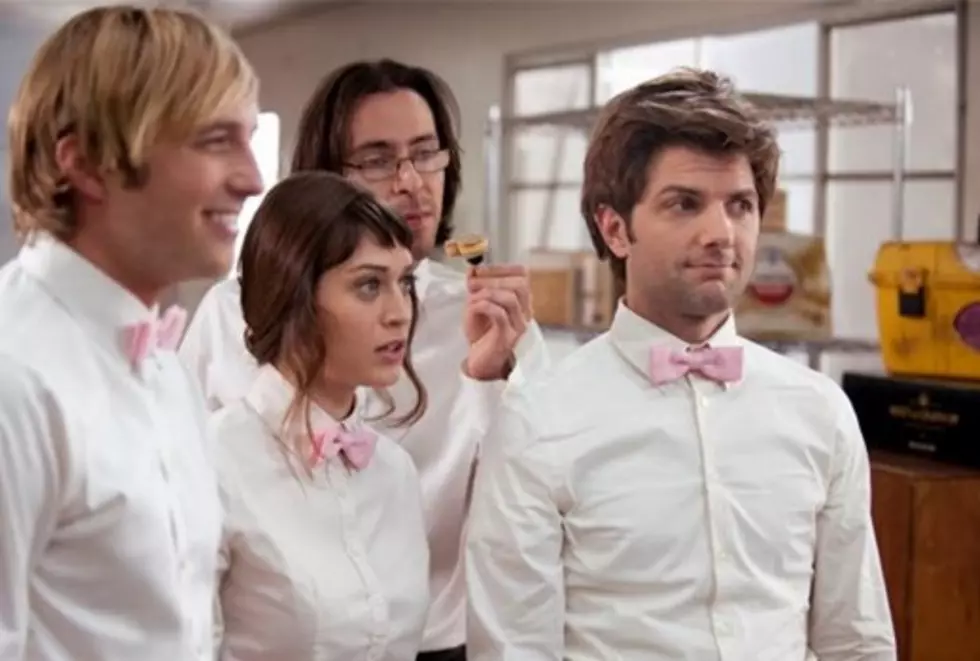
‘Spartacus: War of the Damned’ Series Finale Review: “Victory”
‘Spartacus: War of the Damned’ makes a last stand with its tenth and final episode of the farewell season “Victory,” as Spartacus (Liam McIntyre) leads the rebels into ultimate battle against Crassus (Simon Merrells) and his legions, buying enough time for the remaining slaves to escape to freedom.
Last week’s ‘Spartacus: War of the Damned’ episode “The Dead and the Dying” saw Spartacus capturing Tiberius (Christian Antidormi) to hold gladiator games in honor of Crixus’ memory, while a desperate Crassus tasked Caesar (Todd Lasance) with rescuing his son, so what will the last episode of ‘Spartacus’ final season bring? Will the rebel armies triumph over Rome, or go down in history as a failed slave uprising?
Read on for your in-depth recap of everything you need to know about ‘Spartacus: War of the Damned’ series finale, “Victory!”
Across the raids of multiple villas, we see Spartacus and his men all leading different charges, and all bellowing the same legendary cry, “I AM SPARTACUS!” Crassus sees through the deception however, realizing that Spartacus’ efforts intend to confuse the attacking Pompey, and conceal the true man's whereabouts. Crassus looks over a cast made in the likeness of Tiberius face, before ordering Caesar to move out.
Back at Spartacus camp, Agron offers his services in the coming battle, but cannot grip a sword due to his injuries, and is forced to lead the fleeing survivors as Spartacus and the others fight to buy them time. Later, Nasir fastens a sword and shield combination to Agron, enabling him to fight after all. That evening, Gannicus and Sibyl share one last night together before the separation, Gannicus believing her to have been sent from the gods to save him.
After refining his training, Crassus examines the likeness of Tiberius, and laments that his son grew so cold. Kore continues to insist that an older, scarred man was the one to kill Tiberius, and asks for his forgiveness in joining the rebels, but Crassus doesn’t believe he can offer it.
Spartacus says his goodbyes to Laeta, and okays Agron’s return to battle, before fondly bidding farewell to all of his followers. The men and woman thank Spartacus for his sacrifice, including the mother and child, as Castus rides up and announces that Crassus’ legions have begun to march. Gannicus too says his goodbyes to Sibyl, and readies for battle.
The two armies face one another over a vast plains at night, while a lone rider trots out from Crassus’ side. Surprisingly, the man comes only with a message, asking Spartacus to meet with Crassus atop a nearby hill. Once there, Crassus points out that they’d never actually spoken before and the pair shed their swords to hold a conversation. Spartacus admits he can’t apologize for the fate of Tiberius, revealing that a woman was the true culprit, and boasts that his men will at least freely die of their own choosing if they lose the battle. Crassus questions what Spartacus would do even if he won the battle, to which Spartacus admits that the world holds no real justice, something they both agree on. The enemies shake hands, and vow to meet again on the battlefield.
Back in his tent, Crassus fumes over Spartacus’ revelation, though Caesar insists the man to be lying. Kore finally admits that she was the one to kill Tiberius, but Caesar shields her by revealing Tiberius’ earlier actions of raping her, made bitter by the events of “Decimation.” Crassus crumbles the plaster mold of his son’s face, apologizes and tenderly embraces Kore, promising to end her suffering when the war ends.
Spartacus and Gannicus share a final conversation before the morning’s battle, remembering how Sura had once told him he’d never love another woman after her. Realizing that true victory lies more in life than killing Romans, Spartacus once more urges Gannicus to take his rightful place of leadership, and burdens him with an “impossible” task.
The next day, the two armies face one another on the plains, Crassus preparing his legions while Spartacus delivers a rousing speech to the rebels in praise of their freedom. When Crassus launches flaming projectiles, Spartacus and his men move forward, while the Romans begin to march. At a certain spot Spartacus and his men hold, while the Romans continue advancing, suddenly falling into a hidden pit of spikes! The rebels open fire, to which the Romans raise their shields, but Spartacus and the others soon extend ladders over the pit and break the lines.
Crassus gives order to fire regardless of his men’s lives, while one of the projectiles claims Lugo, who still swings his hammer as he burns to death. Suddenly, Gannicus leads a charge of men from behind Crassus’ legions, turning their own projectiles on the Romans, to which Crassus sends Caesar to stem the confusion. Castus falls in the battle, while Crassus charges at Spartacus, but ends up being dragged away when Spartacus knocks him from his horse.
Saxa is next to fall in the battle, dying in Gannicus arms, as Crassus complains about the men dragging him from the fight. All of a sudden, Spartacus charges over the hill and takes down all the men protecting Crassus, though not without sustaining a few wounds of his own. Meanwhile, Caesar overpowers Naevia and claims her life, taking back Tiberius’ sword from her grip. Gannicus too finds himself cornered by Caesar and the other Romans, losing his swords in exhaustion, before Caesar knocks him out.
Crassus and Spartacus face off on the hilltop, both in somewhat weakened conditions. The battle nearly comes to an end when Crassus pulls his famous sword-grab, but Spartacus manages to deflect his return strike, and knocks Crassus to the ground. Spartacus prepares for the killing below, before a number of spears pierce his body from behind. Crassus expresses his wish that Spartacus had been born a Roman alongside him, while Spartacus expresses joy that he isn’t, seeing visions of Sura. Before Crassus can strike the final blow, Agron and Nasir kill the surrounding Romans and send Crassus tumbling off the hill. Crassus soon returns to the top of the hill with Caesar, but finds Spartacus has escaped once more, as the battle below comes to a victorious close.
Later, Roman soldiers painfully crucify Gannicus along the Appian way, along with the remaining rebels, including Kore. Crassus laments that he had to kill his love, but the thought is soon interrupted by the arrival of Pompey, who routed half the rebels in the North and claimed the entire victory for himself. Crassus bitterly swallows the pill of Pompey’s claims, assuring Caesar they’ll need him as an ally in the future triumvirate. In his delusion, Gannicus sees a vision of Oenemaus (Peter Mensah), and the screams of crucified rebels becomes an arena chanting his name, to which the God of the Arena triumphantly laughs.
Spartacus wakes, surrounded by Agron, Nasir, Laeta, Sibyl and others, but quickly realizes his injuries are too grievous to continue their escape. Laeta cries Spartacus’ name, to which the man laughs, and replies that it had never been his real name. Rather, Sura will greet him with his true name in the afterlife, as he resigns to die a free man. Clouds gather overhead as Spartacus takes his last breath, and the Bringer of Rain once more lives up to his name. Agron assure Spartacus he’ll be remembered long after Rome, and the remaining survivors depart, leaving Spartacus buried under rocks with Agron’s shield atop them.
Finally, the credits show the images of characters past and present, making their final close on Andy Whitfield bellowing “I AM SPARTACUS!”
I'll never forget how I first fell in love with 'Spartacus' as a series, catching the first season and its prequel over Netflix in boredom, not thinking much more of them at the time than an elevated attempt to ape '300' on a lower budget. Of course, I also hadn't realized that the saga of Spartacus drew root in actual history, so I'll admit to rightful ignorance. It soon became apparent however that 'Spartacus' had grown much further beyond homage, or even history, as the series constructed a memorable, lyrical and epic vibe all its own.
I've often been called upon to prescribe the series to others, relaying the beautiful, honest and simple emotions between characters over four seasons, played with a conviction that brings the series to life well beyond its excess. By the fifth episode of 'Spartacus: Vengeance,' I had fallen in love with the characters, dialogue and dizzying heights of it all.It was truly difficult to say goodbye to such a series, one that will escape recognition from major awards, but deserves them above many others.
"Victory" pulls very few punches, and doesn't grant an 'Inglorious Basterds' ending that alters history as some might thought thought. Even my cursory knowledge of historical events (from Wikipedia, no less) left the fate of Spartacus and possibly others open-ended going in, which made the experience all the more gripping when character after character fell. Understandably so, "Victory" pulled out all the stops in showcasing the most epic battles of the series yet, whose dazzling spectacle were outweighed only by our investment for the characters within.
Naturally, we still have to wonder if another season could have served to heighten the finale even further, but that by no means should detract from the wondrous spectacle we beheld tonight. With villains every bit as fleshed out and admirable as the hero himself, emotional and physical conflicts to shake the TV landscape for years, and an inspiring final resolution to the series, 'Spartacus' and its finale should be held no less than pure triumph, to echo with us throughout eternity. "Victory" indeed, 'Spartacus.'
What say you? Did you get your fill of blood-spattering ‘Spartacus: War of the Damned’ action? What did you think about series finale "Victory?" Tell us your fondest memories of the series, and don't forget to check out the premiere of 'Da Vinci's Demons' on Starz!
More From ScreenCrush









